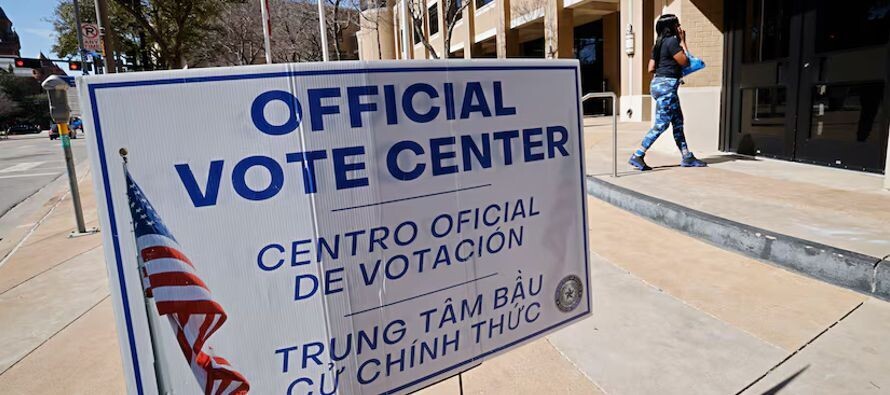
In the heart of Texas's urban expansion, the city of Lewisville embodies the essence of the Lone Star State. Crossed by Interstate 35 and subdivided by six and eight-lane avenues lined with chain stores, Mexican restaurants, and pawn shops, Lewisville, located 37 kilometers north of Dallas, is a prototype space of the second most populous state in the country.
Part of this has fueled Republican efforts to make voting more difficult, especially in Texas, which has some of the strictest voting laws in the country. Lawmakers prohibited election offices from allowing 24-hour voting after it became popular in a major Democratic-leaning county and forbade anyone from sending mail-in ballot requests to eligible voters.
Since then, Texas Republicans have continued to fight against what they see as a threat from additional undue voters. State Attorney General Ken Paxton sued two of the largest and most Democratic-leaning counties in the state to stop their voter registration campaigns, and his office raided the homes of leaders of Latino civil rights advocacy groups in what he said was an investigation into possible electoral fraud.
"There is no doubt that the design of many of Texas's voting laws, both old and new, is based on the idea of demographic change and that new voters will not support those in power," said Michael Li, a senior counsel at the Brennan Center for Justice—a nonprofit organization at New York University School of Law. Li, who grew up in Dallas, continues to observe the state closely.
In 2018, Democrat Beto O’Rourke ran against Republican Senator Ted Cruz. Texas has had recent experiences with a wave of new voters, and that did not turn out as badly for Republicans as the party feared.
In more diverse Lewisville, those who rarely vote or cannot do so are looking more favorably at Trump. "I think Trump would make a difference," said 35-year-old Brandon Taylor, who cannot vote due to a criminal record but is trying to persuade his girlfriend, Whitney Black, to vote for the former president. And similar to other parts of the state, 6 out of 10 residents are non-white, and about two-thirds of its voters cast ballots in the 2020 presidential elections.
Texas Republicans have drawn some of the most notorious redistricting maps in the country, reshaping legislative and congressional district lines to protect party politicians and limit Democratic voters who could unseat them to a few oddly configured districts.
For decades, Republicans have governed Texas. On the other hand, Martha Mackenzie, a retired naval officer in Flower Mound, is a former Republican who left the party because of Trump. "I just can't support a lot of the nonsense that comes from Trump," McKenzie said, mocking particularly his insistence that the 2020 elections he lost to Biden were stolen from him.
The city of Flower Mound, made up of a strip of upscale subdivisions with names like Teal Wood Oaks and Chaucer Estates, ensures that Democrats remain a minority in the Legislature. In 2021, that Legislature tightened voting laws in response to Trump's false claims of fraud against him.
The contrast between the cities goes beyond partisan politics and speaks more to an old adage that Sally Ortega Putney recently expressed in an office complex in Flower Mound. Putney, 59, and a handful of other volunteers were rallying voters on behalf of the Democratic Party.
Both cities represent different facets of Texas society and show the complexities and political divisions that exist in the state. While some residents trust Republicans to protect electoral integrity, others feel alienated by the party's politics and rhetoric, opting to support Democratic candidates. The struggle for proper representation and meaningful voting for every citizen remains an important issue in Texas's political context.










